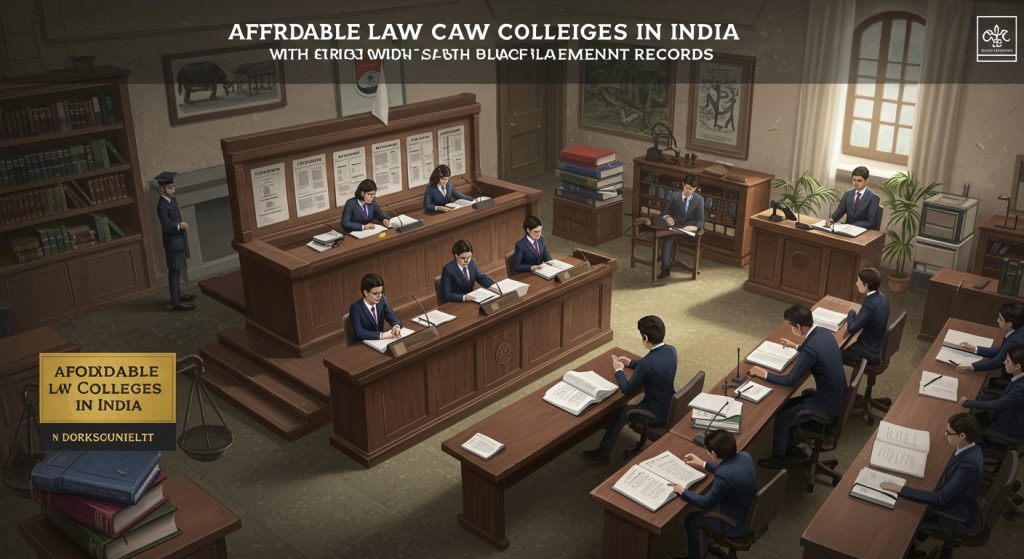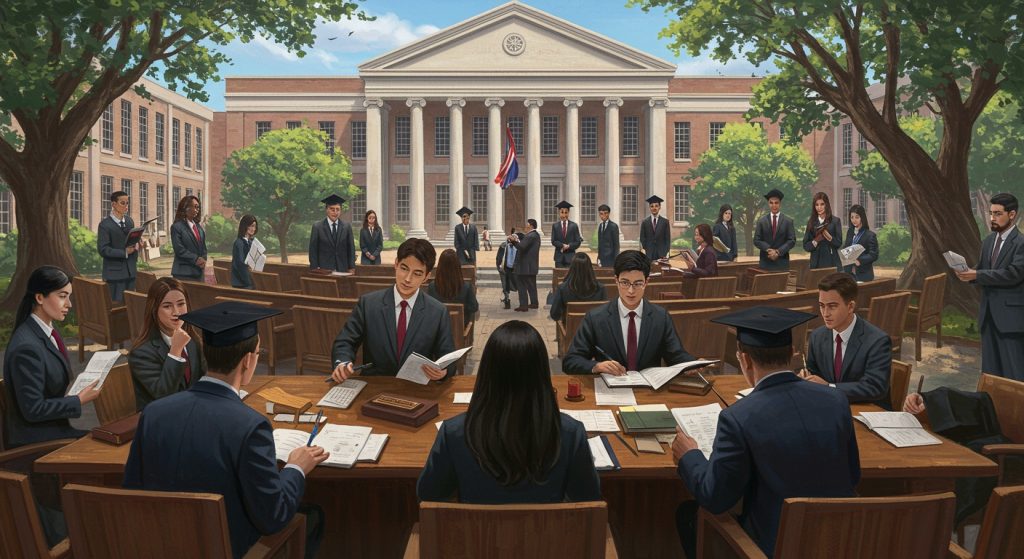Aspiring legal eagles often find themselves navigating a complex landscape when choosing the right law school. Canada’s legal education scene, while highly regarded, presents diverse pathways, from the common law traditions of Osgoode Hall and the University of Toronto to the civil law focus at McGill. Understanding the nuanced differences in program specializations, faculty expertise. Experiential learning opportunities is paramount. This analysis cuts through the rankings hype, offering a comparative look at key criteria such as bar passage rates, career placement statistics. Research impact, revealing how each institution uniquely prepares graduates for the evolving demands of the Canadian legal profession. We will evaluate these institutions based on factors ranging from curriculum innovation to accessibility and student support, offering a clear picture of their strengths and weaknesses.

Understanding the Canadian Legal Education Landscape
The Canadian legal education system is primarily based on a common law tradition, inherited from England. But, Quebec operates under a civil law system, influenced by French legal traditions. This dual system contributes to the unique character of legal studies in Canada. A Juris Doctor (JD) degree is the standard entry-level professional law degree required to practice law in most Canadian provinces. Unlike the US, a specific pre-law undergraduate degree isn’t mandatory, allowing students from diverse academic backgrounds to apply.
Key aspects of Canadian law schools include:
- Focus on Critical Thinking
- Experiential Learning
- Specialized Programs
- Bilingual Education
Law schools emphasize analytical and problem-solving skills over rote memorization.
Clinical programs, moots. Internships are integral to the curriculum.
Many schools offer specialized programs in areas like Indigenous law, environmental law. International law.
Several universities, particularly in Ontario and Quebec, offer programs in both English and French.
Criteria for Evaluating Top Law Schools
Several factors contribute to the ranking and reputation of Canadian law schools. These include:
- Academic Reputation
- Faculty Expertise and Research
- Student-to-Faculty Ratio
- Bar Passage Rates
- Employment Outcomes
- Program Offerings and Specializations
- Location and Networking Opportunities
- Financial Aid and Scholarships
- Diversity and Inclusion Initiatives
Based on peer assessments from legal professionals and academics.
The quality and impact of faculty scholarship.
A lower ratio generally indicates more individualized attention.
The percentage of graduates who successfully pass the bar exam.
The percentage of graduates employed in legal or related fields within a specific timeframe (e. G. , 6-12 months post-graduation).
The breadth and depth of available courses and specialized programs.
Proximity to major legal markets and the strength of alumni networks.
Availability of funding to support students.
Efforts to create a welcoming and inclusive learning environment for students from diverse backgrounds.
A Comparative Overview of Leading Canadian Law Schools
The following section provides a comparative analysis of some of the top law schools in Canada, highlighting their strengths, specializations. Unique features.
University of Toronto Faculty of Law
The University of Toronto (U of T) Faculty of Law is consistently ranked among the top law schools in Canada and globally. It is known for its rigorous academic program, distinguished faculty. Strong focus on legal theory and research.
- Strengths
- Specializations
- Unique Features
- Employment Outcomes
Renowned faculty, extensive course offerings, strong focus on legal theory, access to a vast network of alumni. A prime location in the heart of Toronto’s legal community.
Offers a wide range of specializations, including business law, criminal law, constitutional law. International law.
The school hosts several research centers and institutes, providing opportunities for students to engage in cutting-edge legal research. They also have a strong clinical program, allowing students to gain practical experience in various legal settings.
U of T Law graduates enjoy excellent employment prospects in top law firms, government agencies. International organizations.
McGill University Faculty of Law
McGill University Faculty of Law, located in Montreal, offers a unique bilingual and bijural program that integrates common law and civil law traditions. This distinctive approach prepares graduates for legal practice in both common law and civil law jurisdictions.
- Strengths
- Specializations
- Unique Features
- Employment Outcomes
Bilingual and bijural program, internationally recognized faculty, strong focus on comparative law. A vibrant intellectual community.
Offers specialized programs in areas such as human rights law, environmental law. International law.
McGill’s integrated program is a significant differentiator. Students gain a comprehensive understanding of both legal systems, making them highly sought after by employers. The school also has a strong commitment to social justice and public interest law.
McGill Law graduates are well-represented in leading law firms, government agencies. International organizations, particularly in areas involving comparative or international law.
University of British Columbia (UBC) Allard School of Law
The University of British Columbia (UBC) Allard School of Law, located in Vancouver, is renowned for its strengths in environmental law, Indigenous law. Business law. Its location on the Pacific Rim provides unique opportunities for students interested in international and trade law.
- Strengths
- Specializations
- Unique Features
- Employment Outcomes
Strong programs in environmental law and Indigenous law, excellent faculty. A picturesque location on the UBC campus.
Offers specialized programs in Indigenous legal studies, environmental law. Business law.
UBC Law has a strong commitment to Indigenous legal education and offers a joint degree program in Indigenous legal studies. The school also boasts state-of-the-art facilities and a supportive learning environment.
UBC Law graduates find employment in a variety of legal settings, including law firms, government agencies. Non-profit organizations, particularly in Western Canada and internationally.
Osgoode Hall Law School, York University
Osgoode Hall Law School at York University, located in Toronto, is known for its innovative and experiential learning programs. It offers a wide range of clinical programs and internships, providing students with practical experience in diverse legal fields.
- Strengths
- Specializations
- Unique Features
- Employment Outcomes
Experiential learning opportunities, diverse range of clinical programs. A strong focus on social justice and public interest law.
Offers specialized programs in areas such as criminal law, constitutional law. International law.
Osgoode Hall is known for its commitment to social justice and its focus on providing students with hands-on legal experience. The school has a strong network of alumni working in various legal fields.
Osgoode Hall graduates find employment in a variety of legal settings, including law firms, government agencies. Non-profit organizations, particularly in the Greater Toronto Area.
University of Alberta Faculty of Law
The University of Alberta Faculty of Law, located in Edmonton, is a leading law school in Western Canada, with a strong focus on natural resources law, energy law. Aboriginal law.
- Strengths
- Specializations
- Unique Features
- Employment Outcomes
Strong programs in natural resources law, energy law. Aboriginal law, excellent faculty. A supportive learning environment.
Offers specialized programs in natural resources law, energy law. Aboriginal law.
The University of Alberta Faculty of Law benefits from its location in a province rich in natural resources, providing students with unique opportunities to study and research in these areas. They can also explore Canada’s Best Law Schools: A Focus on International Law. The school also has a strong commitment to community engagement.
University of Alberta Law graduates find employment in a variety of legal settings, including law firms, government agencies. Energy companies, particularly in Alberta and Western Canada.
Comparing Key Features: A Table
| Law School | Location | Key Strengths | Notable Specializations | Unique Features |
|---|---|---|---|---|
| University of Toronto | Toronto, ON | Academic reputation, faculty expertise | Business law, Criminal law, International law | Extensive research centers, strong clinical programs |
| McGill University | Montreal, QC | Bilingual and bijural program | Human Rights law, Environmental law, International law | Integrated common law and civil law curriculum |
| UBC Allard School of Law | Vancouver, BC | Environmental Law, Indigenous Law | Indigenous Legal Studies, Environmental Law, Business Law | Commitment to Indigenous legal education |
| Osgoode Hall Law School | Toronto, ON | Experiential Learning, Clinical Programs | Criminal Law, Constitutional Law, International Law | Focus on social justice and public interest law |
| University of Alberta | Edmonton, AB | Natural Resources Law, Energy Law, Aboriginal Law | Natural Resources Law, Energy Law, Aboriginal Law | Location in a resource-rich province |
Factors to Consider When Choosing a Law School
Selecting the right law school is a significant decision that should be based on individual goals, interests. Priorities. Consider the following factors:
- Career Aspirations
- Learning Style
- Location Preferences
- Financial Considerations
- School Culture
What type of law do you want to practice? Certain schools have strengths in particular areas.
Do you prefer a more theoretical or experiential approach to learning?
Do you want to study in a particular city or region? Consider proximity to potential employers and personal preferences.
Tuition fees, living expenses. Available financial aid should be carefully evaluated.
Research the school’s culture and values to ensure it aligns with your own. Attend data sessions and talk to current students and alumni.
Conclusion
The pursuit of a legal education in Canada offers a diverse landscape of opportunities, each law school presenting a unique approach to shaping future legal minds. Having navigated this comparative analysis, remember that rankings are merely a starting point. Your personal learning style, career aspirations. Financial considerations are crucial filters in this decision-making process. Think of choosing a law school like building a custom legal strategy: tailor it to your strengths and goals. Consider this: a friend of mine chose a smaller, regionally focused law school, leveraging its strong alumni network in environmental law to land her dream job. Don’t underestimate the power of fit over prestige. As you move forward, connect with current students and alumni. Engage in conversations that go beyond brochures and websites. Ultimately, selecting the right law school is about finding the environment where you can thrive, develop your unique legal voice. Build a foundation for a successful and fulfilling career. Believe in yourself, trust your instincts. Embark on this exciting journey with confidence!
FAQs
So, what actually makes a law school ‘top’ in Canada? Is it just rankings?
Good question! Rankings like those from Maclean’s are definitely a factor, since they look at things like reputation, faculty qualifications. Research output. But it’s not just rankings. Think about things like the school’s specific areas of expertise (do you want to specialize in environmental law?) , its location (big city or smaller town?). The overall culture of the school. What feels right for you matters a ton!
Okay. If I do care about rankings, which schools are usually near the top in Canada?
You’ll often see schools like the University of Toronto, McGill University, Osgoode Hall Law School at York University. The University of British Columbia consistently near the top of most Canadian law school rankings. But remember, ‘top’ doesn’t automatically mean ‘best for you’. Do some digging!
What’s the deal with the LSAT? Is it super crucial for getting into a Canadian law school?
Yes, the LSAT (Law School Admission Test) is absolutely essential. It’s a standardized test designed to assess your reading comprehension, logical reasoning. Analytical reasoning skills, all of which are crucial for law school. A high LSAT score can significantly boost your application. But, schools also consider your GPA, your personal statement. Any relevant experience.
How much does law school cost in Canada? I’m bracing myself…
Brace yourself indeed! Tuition varies quite a bit between provinces and universities. You’re generally looking at somewhere between $20,000 and $40,000 per year. And that’s just tuition! Don’t forget living expenses, books. Other fees. Definitely research financial aid options and scholarships early.
Are there any Canadian law schools that are known for specializing in certain areas of law?
Definitely! For example, McGill is known for its focus on civil law and its bilingual environment. Osgoode Hall has a strong reputation in areas like constitutional law and labour law. The University of Calgary is strong in natural resources law. It really depends on your specific interests.
What kind of job can I expect to get after graduating from a top Canadian law school?
Graduating from a top law school opens a lot of doors! Many grads go on to work at large law firms, government agencies, or non-profit organizations. Some pursue careers in academia or become in-house counsel at corporations. Your specific career path will depend on your interests, your network. The opportunities you create for yourself.
Okay, last question: What’s one piece of advice you’d give someone thinking about applying to law school in Canada?
Network! Talk to lawyers, law students. Professors. Attend law school details sessions. The more you learn about the legal profession and different law schools, the better equipped you’ll be to make an informed decision and craft a compelling application.



